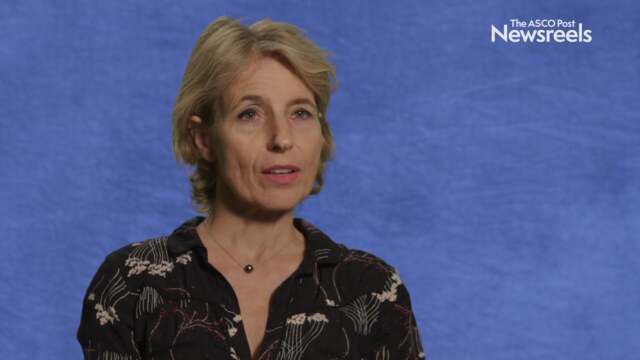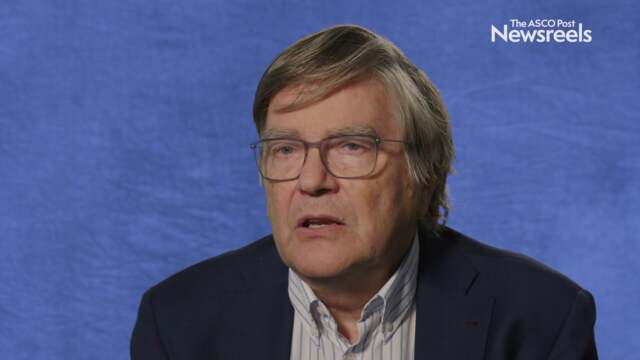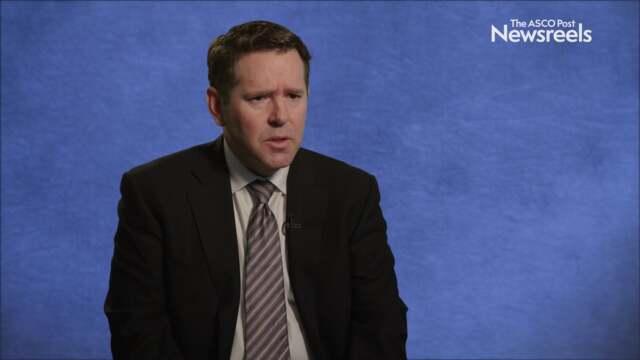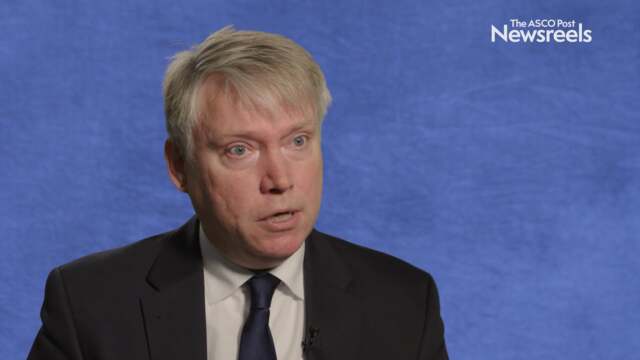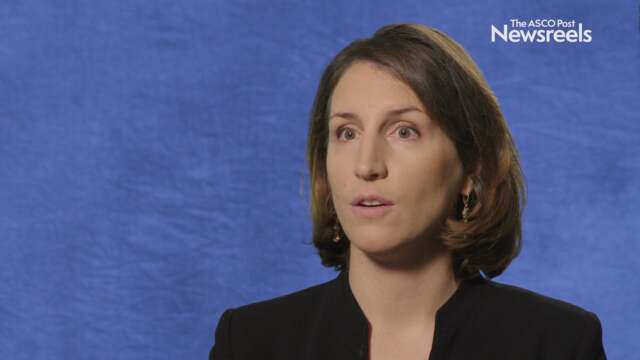Alexander M.M. Eggermont, MD, PhD, on Melanoma: Advances in Adjuvant Therapy
ESMO 2018 Congress
Alexander M.M. Eggermont, MD, PhD, of Gustave Roussy, discusses findings from recent adjuvant trials in high-risk melanoma, and what the NCCN Guidelines recommend in light of such data as results on dabrafenib plus trametinib vs anti–PD-1 treatments (nivolumab or pembrolizumab) and the new standard for wild-type disease.
Caroline Robert, MD, PhD, of Gustave Roussy Cancer Centre, discusses two high-impact studies in stage III melanoma treatment: an update of the COMBI-AD trial examining dabrafenib and trametinib; and neoadjuvant ipilimumab and nivolumab therapy.
Matti S. Aapro, MD, of the Genolier Cancer Centre, discusses the optimal treatment and supportive care for older patients with cancer, including the importance of maintaining dose density and intensity as well as monitoring toxicity.
Karl Lewis, MD, of the University of Colorado, discusses a phase II study of cemiplimab in patients with advanced basal cell carcinoma who experienced progression of disease on, or were intolerant of, prior hedgehog pathway inhibitor therapy.
For more information about this ongoing trial, visit clinicaltrials.gov
ClinicalTrials.gov ID: NCT03132636
Martin Reck, MD, PhD, of the LungenClinic, discusses recent updates on biomarkers beyond PD-L1 expression; mechanisms and management of resistance; as well as combinations and novel approaches in lung cancer.
Laurence Albiges, MD, PhD, of Gustave Roussy, discusses data from the global, phase III JAVELIN trial that compared axitinib plus avelumab vs sunitinib, which could lead to a new standard of care in renal cell carcinoma (Abstract LBA6_PR).
